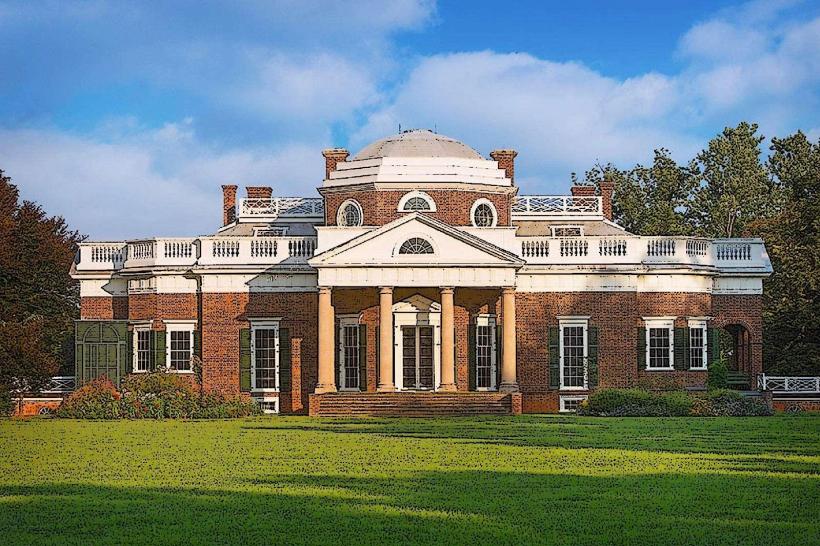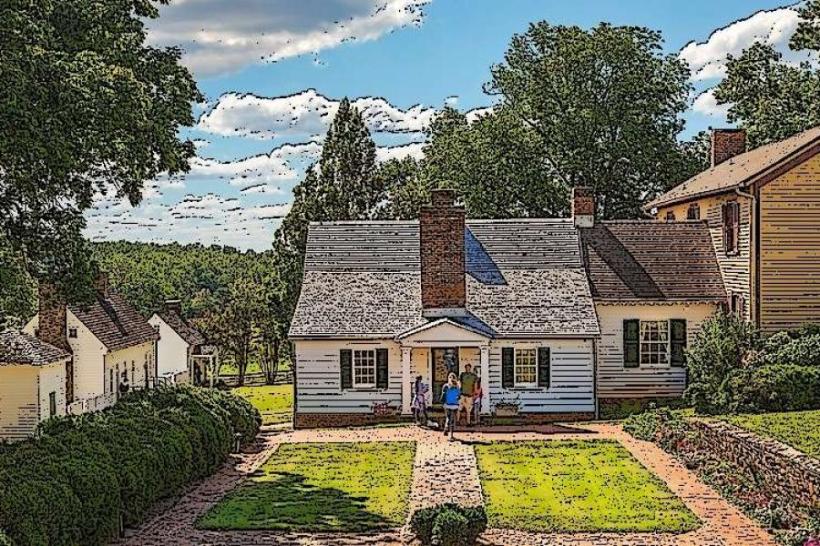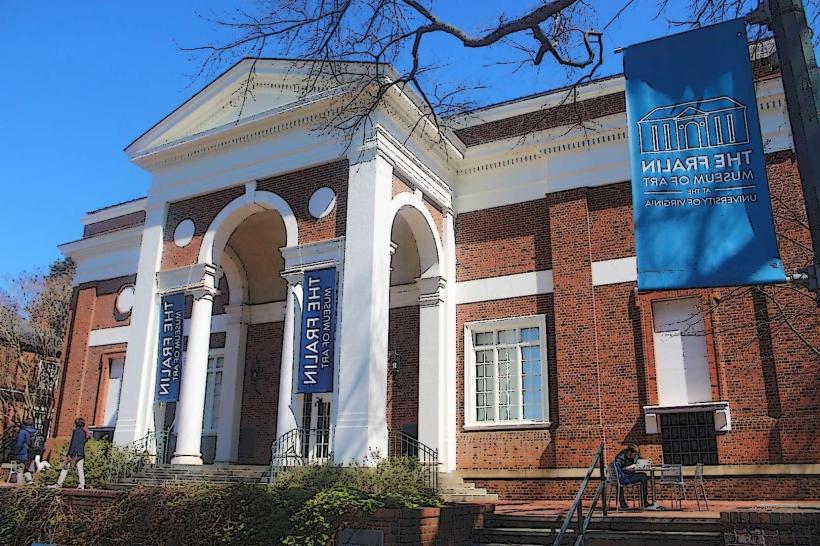Information
Landmark: University of VirginiaCity: Charlottesville
Country: USA Virginia
Continent: North America
University of Virginia, Charlottesville, USA Virginia, North America
The University of Virginia (UVA), located in Charlottesville, is one of the United States’ most prestigious and historically significant public universities. Founded in 1819 by Thomas Jefferson, UVA embodies his Enlightenment ideals of education, democracy, and architectural innovation. It remains a leading institution in academics, research, and cultural influence.
Historical Background and Founding Vision
Thomas Jefferson conceived UVA as a “new model” for higher education, distinct from colonial colleges that were often tied to religious instruction. His vision was for a secular university dedicated to the pursuit of knowledge, public service, and the cultivation of an informed citizenry capable of sustaining a democratic republic.
Jefferson personally designed the university’s original campus layout, known as the Academical Village, which is now a UNESCO World Heritage Site. This design reflected his belief that architecture and environment play a crucial role in learning and community life.
Academical Village and Architecture
The Academical Village is UVA’s historic core, centered around the Rotunda, a majestic domed building modeled after the Roman Pantheon. The Rotunda originally housed the university library and symbolized the light of knowledge.
Surrounding the Rotunda are the Lawn, a large, grassy quadrangle lined with faculty pavilions and student rooms, designed to foster interaction between professors and students. The architectural style is predominantly Jeffersonian Neoclassical, featuring red brick, white columns, and classical proportions.
The layout embodies Jefferson’s ideal of an integrated academic community, where living and learning spaces coexist to promote dialogue and intellectual engagement.
Academic Excellence and Programs
Today, UVA is a comprehensive research university offering a wide range of undergraduate, graduate, and professional programs across various disciplines, including:
Humanities and Social Sciences
Sciences and Engineering
Business and Commerce (through the Darden School of Business)
Law (through the UVA School of Law)
Medicine (through the UVA School of Medicine)
Architecture, Education, and more
UVA is consistently ranked among the top public universities in the United States, renowned for its rigorous academics, distinguished faculty, and commitment to public service.
Campus Life and Culture
UVA’s campus life is vibrant, with over 1,000 student organizations, including cultural groups, honor societies, sports clubs, and performing arts ensembles. The university fosters a strong sense of tradition, with rituals like Final Exercises (graduation), Lighting of the Lawn (holiday celebration), and the Tree Lighting Ceremony.
The university also emphasizes community engagement and leadership, encouraging students to participate in service projects, internships, and global programs.
Research and Innovation
UVA is a major research institution with extensive facilities supporting innovation in areas such as health sciences, engineering, social policy, and environmental studies. The university collaborates with government, industry, and nonprofit organizations, contributing to advances in medicine, technology, and public policy.
Cultural and Athletic Highlights
The University of Virginia Art Museum and the Fralin Museum of Art offer rich collections accessible to students and the public.
UVA boasts a strong athletic tradition, competing in NCAA Division I sports as part of the Atlantic Coast Conference (ACC). The university’s basketball and football teams enjoy passionate local and student support.
The campus hosts numerous lectures, performances, and exhibitions, reinforcing its role as a cultural beacon in Charlottesville and beyond.
Legacy and Impact
The University of Virginia stands as a living monument to Jefferson’s educational ideals and remains a beacon of academic excellence, intellectual freedom, and civic responsibility. Its influence extends far beyond Charlottesville through its alumni, research contributions, and commitment to fostering informed and engaged citizens.
In summary, the University of Virginia is not only a center for higher learning but also a historic and architectural treasure. It reflects a unique fusion of tradition, innovation, and community, making it a cornerstone of Charlottesville’s identity and a pillar of American higher education.










